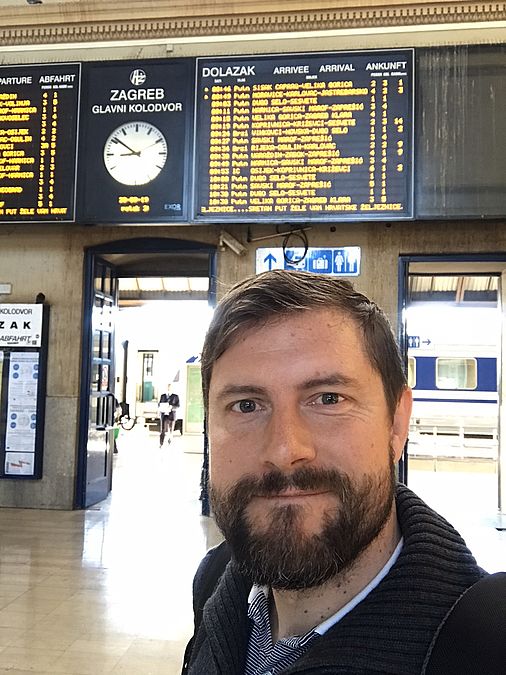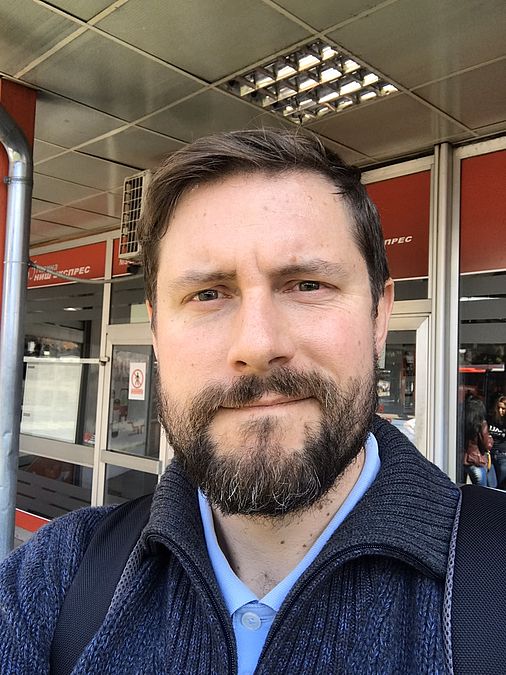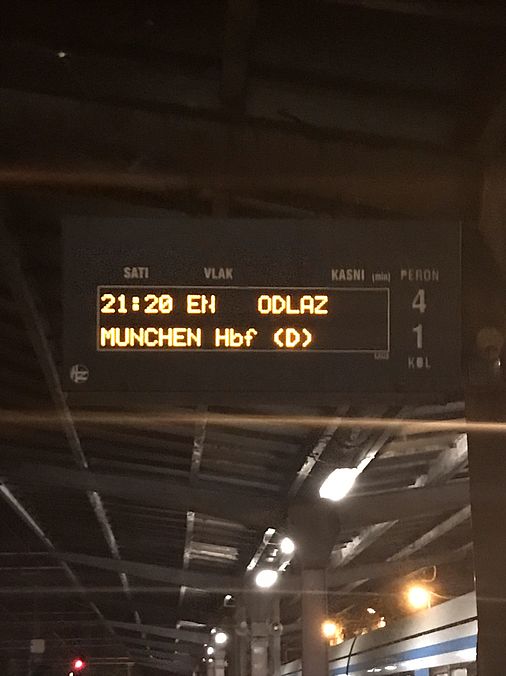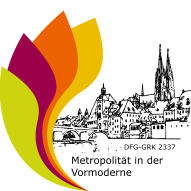
„Eco-friendly travel“ im GRK 2337
Nachhaltigkeitsbewusstsein als Bestandteil des wissenschaftlichen Arbeitsalltags
Streben nach fachwissenschaftlicher Exzellenz und transdisziplinärem Erkenntnisgewinn zur „Metropolität in der Vormoderne“ bildet das Zentrum der Anstrengungen des Graduiertenkollegs 2337. Kritische Reflexion historischer wie zeitaktueller Vorgänge ist hierfür das notwendige das Fundament. Gegenwärtig gehören dazu Fragen nach der Verantwortung als Wissenschaftler/in für Gesellschaft und Umwelt. So zählen z.B. Forschungs-, Archiv- und Tagungsreisen zu den elementaren Bestandteilen produktiver (geistes-)wissenschaftlicher Tätigkeit, sind jedoch zugleich mit relativ hohem Ressourcenverbrauch verbunden.
Wertschätzung für Nachhaltigkeit und Verantwortungsbewusstsein in Bezug auf die alltägliche wissenschaftliche Arbeitspraxis sind – die konkreten Forschungsziele unterstützend - Bestandteile des ganzheitlichen Qualifizierungskonzepts im GRK 2337.
Wie man als Forscher/in innerhalb des GRK 2337 „Metropolität in der Vormoderne“ proaktive Entscheidungen für „eco-friendly travel“ im Sinne des Klimaschutzes treffen kann, beschreibt der folgende Text. GRK-Mitglied Christopher Sprecher beschreibt die Beweggründe, die ihn zur Umstellung bewogen haben und seine Ziele im Hinblick auf umweltfreundliches Reisen.
Making the journey part of the destination: thoughts on and experiences of more environmentally friendly travel and the academy in an age of climate change
By Christopher Sprecher
Climate change is all around us today: not just reflected in the weather and environment, but heard on the news and brought to mind increasingly by protests around the world, across Germany, and here in Regensburg with the “Fridays for Future” movement. As a result, I personally began to reflect on what steps I can take to reduce my carbon footprint and live and work in a more environmentally friendly manner. In the academic world, we as scholars and researchers are often in the field and away from home: not merely on the commute to the office or laboratory or classroom, but often at conferences or research sites far from our residence. How do we get thither? Can we, as members of the academic community, also take climate change to heart in our increasingly global work?
I sought to make my own first steps toward a more environmentally responsible career earlier in the year on two academic trips. I was to give a paper at the International Oxford Patristics Conference in England, and attend a workshop on Old Bulgarian and Medieval Greek manuscripts in Sofia, Bulgaria, and chose to travel to and from both locations via combinations of rail and bus travel.
In some cases, choosing the more environmentally friendly mode of transportation can cost more than a cheap EuroWings or RyanAir flight; this was certainly the case compared to travelling via ICE and Eurostar trains to London and beyond. For research clusters/faculties/universities juggling budgets, climate-friendly travel might mean rethinking fund allocations. Perhaps more can be done in terms of online group chats and video conference calls, to bring together scholars from around the world to a specific time and place without incurring a heavy carbon emission.

Pic. 1: Arriving in Zagreb after the night train from Munich (Photo: Christopher Sprecher)
In the case of the trip to Bulgaria, being more ecologically friendly meant journeying for longer. A flight from Munich to Sofia takes about an hour; with the combination of night trains, day trains, and buses, the same journey from Regensburg to Sofia took two days, with an overnight stay in Belgrade. Many professionals might lament the amount of time that climate-friendly travel can take, given the many responsibilities and tasks on everyone’s plate. Yet I found the journey became a destination in itself. I had more time to think and prepare for my destination, more time to adjust to the reality of being in a new place, a new cultural space that was to inform the location and experiences I had during the manuscript workshop. Nonetheless, two days is not that long compared to how long it would take to cover even further distances between home and research/conference location (say, from Regensburg to the United States, or any other continent). Short-term and long-term initiatives to conduct this kind of long-distance travel in a climate-friendly manner will require deep thought and creative solutions on the part of society as a whole – but scholars and researches should bring their travel needs, wishes, and experiences to this debate as well.

Pic. 2: Waiting in Niš, Serbia, for the bus to Sofia, Bulgaria (Photo: Christopher Sprecher)
Moving forward, I hope to be able to make future trips as environmentally responsibly as possible. In our work and travels as academics, we can thus be at the forefront not only of our own fields of expertise, but also of our common human task to preserve and safeguard our environment for generations of scholars yet to come.

Pic. 3: At Zagreb Central Station, waiting for the night train on the return trip (Photo: Christopher Sprecher)

